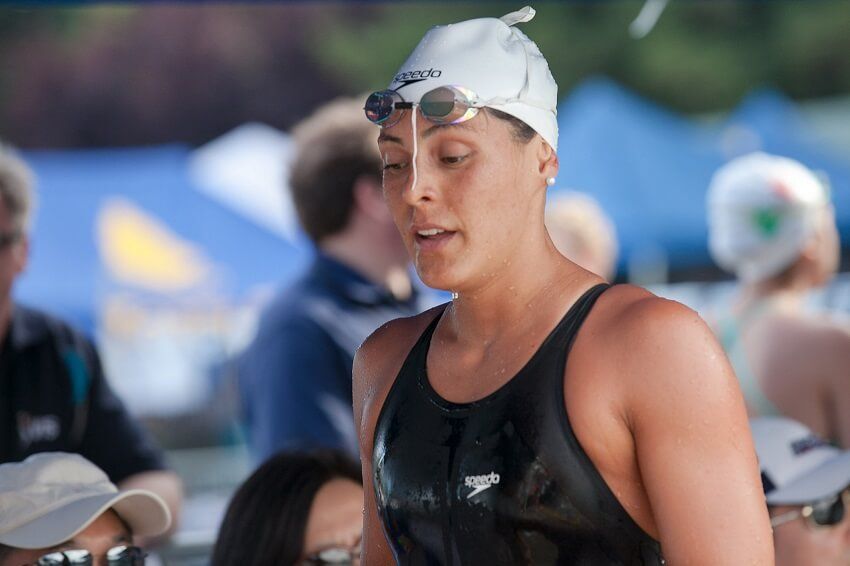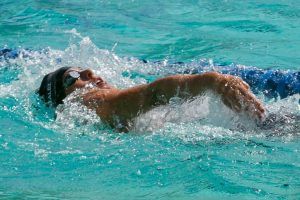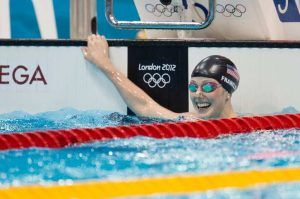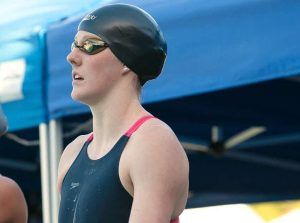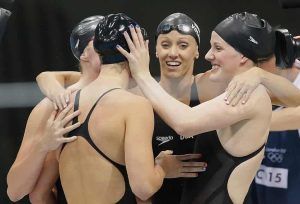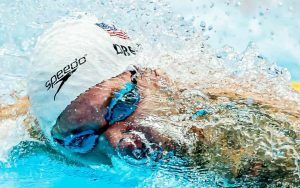There is no denying that the life of a student-swimmer is hard.
A seemingly never-ending stream of assignments and workouts. You feel like you are being pulled at from a dozen different directions, your time is at a constant premium, and there are those moments where all you want to do is get your head above water and take a break from it all.
As it turns out, however, swimmers have it good.
Outside of that whole being super-fit thing and having a swimmer’s body, we also tend to have better outcomes in school compared to not only non-athletes, but even our fellow athletes.
Whether you are in high school, university, or pre-K, here are 5 struggley struggles of being a student-swimmer:
1. Being perpetually time-crunched.
It’s tough taking on a full time school load and then training 8-10 times per week. It makes for a hectic life, with short evenings, tight deadlines and loads of cramming between prelims and finals on the weekends.
I’ve been there.
But research has consistently shown that athletes do better in school.
One Kansas study of grade 9-12 showed student-athletes were more likely to attend class, more likely to graduate and had lower dropout rates. Another study of Spanish age group swimmers showed academic performance was positively linked to effort given in the pool.
You’ll hear swimmers mull over how amazing their academics could be if they had more time for studying.
“I would get A++++’s in all my classes if I didn’t have 4 hours of training today.”
And while this may be true in a few extreme cases, the time is already there. It simply requires you to prioritize and organize it.
See Also: Does Swimming Make You Smarter?
2. Being a star in the pool, but not in the classroom.
We all have those superstars in our midst. The swimmer who makes it look so easy, and as such, devotes all their time and energy into being more successful.
But when other pursuits require their attention and focus, and it doesn’t come as naturally to them, they get discouraged quickly, shrugging it off as “not their thing.”
As a result, they drive more of their energy and focus into the one thing they know they are good at.
The swagger that works on deck doesn’t always translate to the classroom, and the pride that often comes with high performance in the water means that they are less likely to ask for assistance or admit weakness outside of it.
3. Having a hard time getting inspired to study.
Swimming comes with goals. With medals. With glory.
Academics, not so much.
If a swimmer is focused mainly on making his or her swimming pan out over the long term, it can be hard to spare motivation for school work. They will view it as a necessary evil, simply something that they have to do in order to further their swimming goals.
Swimmers understand the benefits of creating goals, making a plan to achieve them, and then pounding away at it until it comes to fruition.
It should be no different in the classroom.
Set goals completing the class, or doing just well enough so that you can compete, and you will begin to take a more active interest in your studies.
4. Not planning ahead.
This goes hand in hand with managing your time.
There are going to be stretches of time over the course of the year when you know you are going to be getting pummeled with assignments. Or your calendar is pock-marked with exams. Or you have a hellacious 10-day training camp that is going to leave you physically and mentally gassed for the duration.
Circle these weeks in your calendar. Prep and plan for these weeks. You know they are coming, so get ahead of them instead of getting blindsided by them when they happen.
5. Trying to do it all on your own.
I was super guilty of this during university.
I would continue to heap commitments, assignments and training onto my plate until it broke me. I could have asked for help at any point, from my coaches, my academic counselors, profs—but in a regrettable show of stubbornness and pride I would typically wait until it was too late to ask for help or an extension.
You have a heap of resources and people in your support network.
Use them.
You will almost never get help unless you ask for it. It’s not a sign of weakness or a shot to your pride to admit that you are starting to sink, so take advantage of the help and assistance that is there waiting for you.

